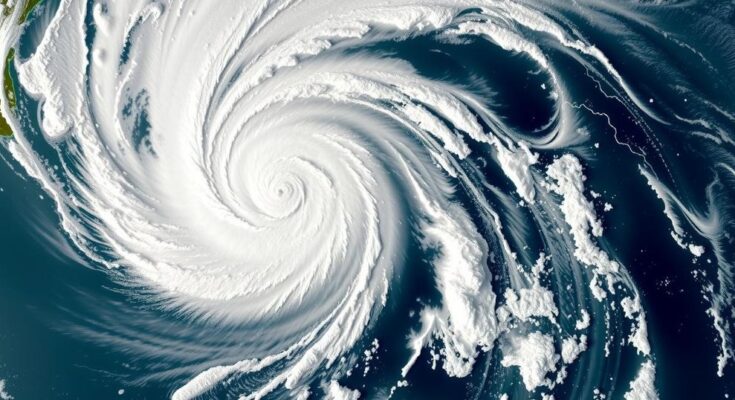Tropical Cyclone Chido is expected to significantly impact Southern Africa, particularly Mozambique, Malawi, and the Comoros. With over 2.5 million people at risk due to strong winds and heavy rains, authorities are actively preparing for potential flooding and mudslides. Emergency response plans are being enacted across affected countries as assessments of the cyclone’s impact continue.
As of December 14, 2024, Tropical Cyclone Chido has significantly affected regions in Mayotte and the Comoros, with forecasts predicting strong winds and heavy rainfall that may cause flooding and mudslides. Approximately 2.5 million individuals are residing in the cyclone’s projected path, predominantly in Mozambique, Malawi, and the Comoros. While damages in Madagascar have not been reported, assessments are ongoing. Authorities are actively issuing advisories and preparing for potential impacts, particularly as Chido is set to make landfall in northern Mozambique on December 15.
Tropical Cyclone Chido, characterized by severe wind conditions exceeding those of past cyclones, is anticipated to bring tumultuous weather to Southern Africa. As it moves westward, Chido has already caused devastation in Mayotte, leading to flooding and perilous sea conditions. Forecasts indicate that the cyclone will maintain its intensity while crossing the northern Mozambique Channel, exerting strong effects as it approaches the Cabo Delgado Province. Humanitarian efforts are underway as national and regional bodies coordinate their responses to the potential disasters.
Cyclone Chido originated as a tropical depression in the southeastern Indian Ocean and rapidly intensified into a Category 4 storm before weakening slightly. Governments have declared emergencies in various affected areas, including issuing alerts, setting up operational centers, and facilitating the prepositioning of relief supplies. The risk of flash floods and major rainfall—exceeding 150 mm over several days—remains a critical concern for northern Mozambique, Malawi, Zimbabwe, and Zambia, with additional impacts expected in parts of southern Africa.
In response to the cyclone, nations have activated their disaster response plans. The Comoros issued an emergency alert and is monitoring the situation closely. In Mozambique, red alerts for Cabo Delgado and Nampula Provinces are in effect, with precautionary measures advised. Malawi’s Department of Climate Change and Meteorological Services has issued warnings for substantial rainfall, escalating the urgency of disaster response initiatives. Authorities in Madagascar are also evaluating potential impacts as they prepare for unsettled weather conditions following the cyclone’s passage.
The ongoing situation necessitates swift action and collaboration among regional partners to mitigate the cyclone’s possible adverse effects on vulnerable populations in its projected path.
Tropical Cyclone Chido, which developed in the southeastern Indian Ocean, is a significant weather event threatening Southern Africa. It has already impacted several islands, including Mayotte and the Comoros. Approximately 2.5 million people live in areas likely affected by Chido, with major populations in Mozambique and Malawi. The cyclone poses severe risks such as flooding, strong winds, and potential mudslides, leading to heightened emergency preparedness across the region. The response involves coordinated efforts by local and national authorities to safeguard communities and assess damages post-impact.
In summary, Tropical Cyclone Chido poses an imminent threat to millions across Southern Africa, with its path expected to bring severe weather conditions, especially in Mozambique and Malawi. Authorities are implementing emergency measures to mitigate the impact, providing warnings, and preparing for significant rainfall and winds. The situation remains fluid, with ongoing assessments and collaborations aimed at safeguarding vulnerable populations as the cyclone progresses toward landfall.
Original Source: reliefweb.int




